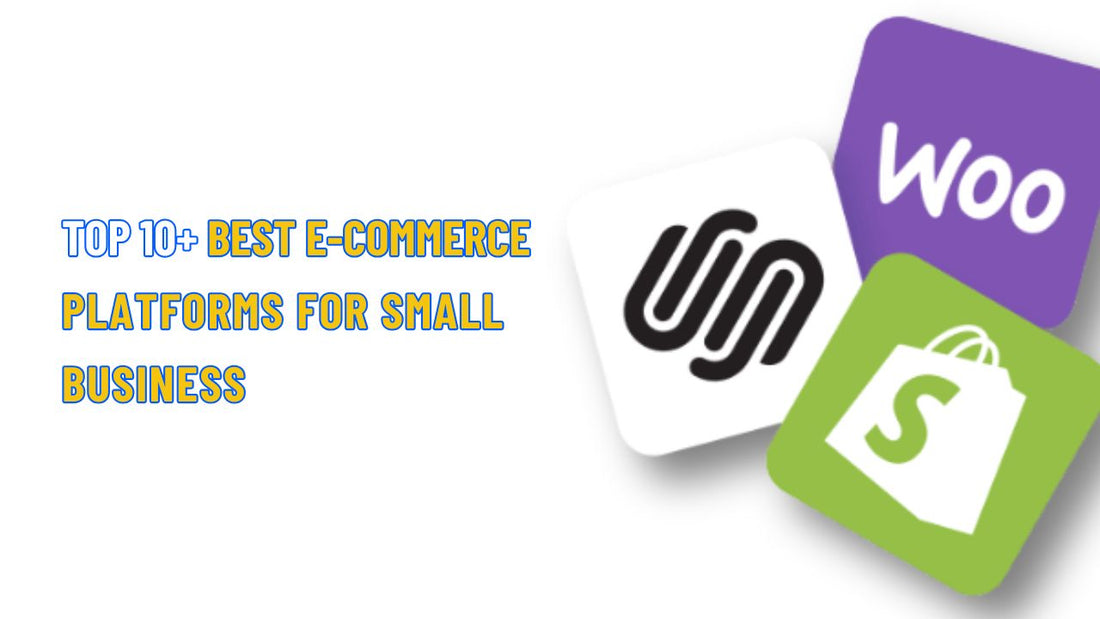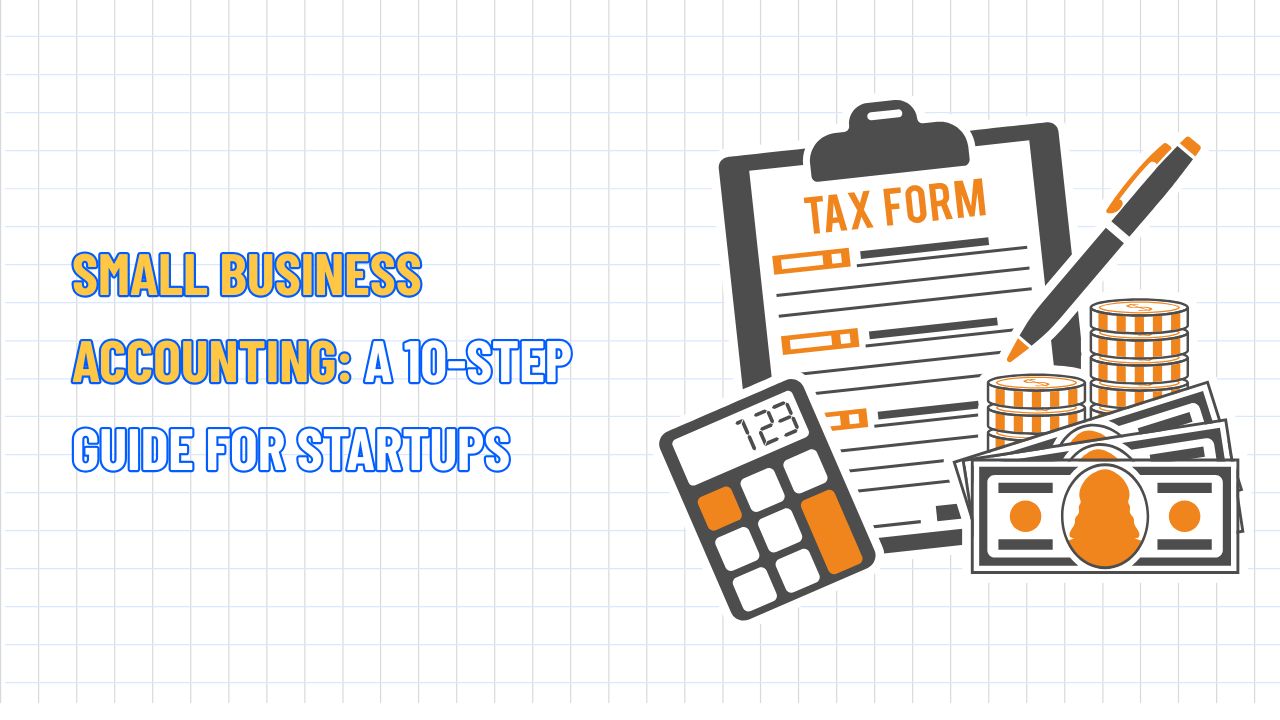Top 9+ Best Ecommerce Platforms for Small Businesses
Table of Contents Hide
Choosing the best ecommerce platform for small business is essential for small companies looking to stay competitive in today’s crowded digital marketplace. In this article, NextSky highlights the top options to help you make a smart decision.
Why choosing the right e-commerce platform matters
Today, small businesses face unique challenges like limited budgets, restricted technical know-how, and the need for rapid growth. To flexibly meet these demands, consider the following factors:
- Cost: Balance subscription fees, transaction fees, and hidden costs like storage or app integrations.
- Ease of use: Intuitive interfaces and no-code solutions for non-tech-savvy users.
- Customization: Flexible themes and API access to match your brand.
- Scalability: Support for growing product catalogs, traffic, and sales channels.
- Integrations: Compatibility with online marketplaces, social media, and third-party tools.
- Support: Reliable customer service for quick issue resolution.
Read more: What is A Small Business? A Comprehensive Guide to Definition
Top 9 e-commerce platforms for small businesses in 2025
Below are the leading platforms based on features, pricing, and suitability for small businesses.
1. Shopify
Shopify is a household name in e-commerce, renowned for its robust features and scalability. It's the top choice for businesses ranging from solo entrepreneurs to larger ones like Allbirds.

Key features:
- Unlimited products and bandwidth.
- Multi-channel sales integrations with Amazon, eBay, Instagram, and TikTok.
- Sync online and in-person sales for events or retail stores.
- Over 8,000 apps for add-ons, from dropshipping to analytics.
- Shopify Magic for product descriptions and site building.
- 24/7 support via chat, email, and phone.
Pros:
- Scales from small to large businesses.
- Vast app ecosystem.
- Strong multi-channel selling.
Cons:
- Transaction fees (0.6%–2%) if not using Shopify Payments.
- Higher tiers can get pricey.
- Backend interface is complex for beginners.
Pricing:
- Starter: $5/month (social media sales only).
- Basic: $29/month (2.9% + $0.30 card processing fee).
- Grow: $79/month.
- Advanced: $299/month.
- Plus: $2,300/month (enterprise).
Suitable for: Businesses planning rapid growth or needing a Shopify-like platform with rich app integrations and POS capabilities.
2. Wix
Wix is one of the most user-friendly and versatile website builders today, with comprehensive e-commerce tools and built-in marketing features. It's ideal for businesses wanting to build an online brand without coding skills.
Key features:
- Integrated email campaigns, social posts, and logo maker.
- Over 2,000 templates for easy design.
- Quick site setup with AI-generated designs.
- Connections to Amazon, eBay, and social platforms.
- 24/7 phone and chat support, plus a vast knowledge base.
Pros:
- Beginner-friendly drag-and-drop editor.
- Strong marketing tools out of the box.
- Affordable entry point.
Cons:
- Product limit of 50,000.
- Can't switch templates after publishing.
- Higher processing fees across all plans.
Pricing:
- Core: $29/month (2.9% + $0.30 card processing fee).
- Business: $36/month.
- Business Elite: $159/month.
Suitable for: Creative small businesses focused on design and integrated marketing.
3. Squarespace
Squarespace excels at creating modern, mobile-optimized websites. It's perfect for fashion, beauty, wellness, or artistic brands where visuals and user experience are central.

Key features:
- Over 180 customizable, responsive templates for flawless display on any screen.
- Acuity Scheduling integration for easy service bookings like spas, clinics, salons, or personal trainers.
- Direct links to Amazon, Etsy, and popular social networks to expand sales channels.
- Built-in SEO tools to boost search visibility for brands aiming to grow their online presence.
Pros:
- Stunning, professional designs.
- Excellent for visual-heavy industries.
- Seamless scheduling and SEO.
Cons:
- Slower site speeds due to heavy images.
- No native POS hardware.
- Limited app library (over 25 apps).
Pricing:
- Basic: $16/month (2.9% + $0.30 card processing fee, 2% transaction fee).
- Core: $23/month.
- Plus: $39/month.
- Advanced: $99/month.
Suitable for: Image-driven small businesses prioritizing aesthetics and bookings.
4. BigCommerce
BigCommerce is tailored for businesses handling complex inventory and extensive product catalogs. With powerful tools and flexible scaling, it offers an optimal solution for brands seeking an e-commerce system that grows with them.
Key features:
- Supports millions of products, variants, and SKUs for large-scale catalogs.
- Easy multi-brand or multi-market operations.
- Near 0% transaction fees with third-party payment providers.
- Built-in integrations with shipping apps like FedEx, UPS, or ShipStation for automated fulfillment and error reduction.
Pros:
- No transaction fees on most plans.
- Robust inventory management.
- Strong for B2B and wholesale.
Cons:
- Templates lack modern flair, requiring extra customization.
- Steep learning curve for beginners, especially advanced setups.
- Limited checkout page customization.
Pricing:
- Standard: $29/month.
- Plus: $79/month.
- Pro: $299/month.
- Enterprise: Custom.
Suitable for: Inventory-heavy small businesses focused on scalability.
5. WooCommerce
WooCommerce, the WordPress e-commerce plugin powering over 28% of online stores worldwide, is perfect for small businesses or WordPress users wanting a customizable sales site on a flexible budget.

Key features:
- Free plugin with over 1,000 payments, shipping, security, and marketing extensions.
- Complete design control with easy SEO via plugins like Yoast.
- Unlimited products, depending on hosting capacity.
- Seamless integrations with Amazon, eBay, and social media.
- Extensive community support, plus paid expert services.
- PCI-DSS compliant with secure hosting.
Pros:
- Highly customizable and open-source.
- No platform lock-in.
- Cost-effective for WordPress users.
Cons:
- Requires technical knowledge and self-managed hosting.
- Extension costs can add up.
- No built-in support.
Pricing:
- Plugin: Free.
- Hosting: $4–$45/month.
- Extensions: $0–$99/year.
- No transaction fees; card processing varies by gateway (e.g., 2.9% + $0.30).
Suitable for: WordPress users wanting Shopify-like power with deep customization and complete control.
G2 Rating: 4.4/5.
6. Ecwid by Lightspeed
Ecwid by Lightspeed lets you embed an online store into any existing site, from WordPress and Joomla to personal blogs, without a complete rebuild. It's ideal for small businesses to quickly and affordably expand into e-commerce.
Key features:
- Easy embedding in WordPress or Joomla with 70+ payment gateways.
- Unlimited bandwidth, multi-channel sales on Amazon, Walmart, and social media.
- PCI-DSS compliant security for safe transactions.
- Intuitive site builder with free themes.
- Flexible dropshipping via extensions.
Pros:
- No transaction fees.
- Works with existing sites.
- Mobile app for management.
Cons:
- Starter plan limits to 5 products.
- Advanced customization needs tech skills.
Pricing:
- Starter: $5/month (up to 5 products).
- Business: $15/month (up to 100 products).
- Unlimited: $105/month (unlimited products, no transaction fees; card processing per gateway).
Suitable for: Sites or blogs adding a compact online store, similar to Shopify Lite. G2 Rating: 4.7/5.
7. Square Online
Square Online shines with seamless POS integration and syncs online and in-store sales data. It's ideal for restaurants, cafes, or food trucks going digital.

Key features:
- Free plan with unlimited products.
- Automatic POS sync for in-person sales.
- Over 440 apps, including basic email marketing.
- Social integrations with Instagram and Pinterest.
- Built-in shipping and tax tools.
- Phone support during business hours.
Pros:
- Free entry plan.
- Great for omnichannel retail.
- Simple setup.
Cons:
- Limited customization on the free plan.
- No multi-currency support.
Pricing:
- Free: $0/month (2.9% + $0.30/transaction).
- Plus: $29/month.
- Premium: $79/month.
Suitable for: Restaurants, food trucks, and small retail shops. G2 Rating: 4.2/5.
8. Shift4Shop
Shift4Shop (formerly 3dcart) is one of the few platforms prioritizing SEO. Strong optimization tools and flexible store management make it perfect for small to medium businesses, attracting organic traffic over paid ads.
Key features:
- Meta tag wizard, sitemaps, and redirects for SEO.
- Over 100 templates, unlimited products.
- Accepts Bitcoin and niche products like CBD.
- Integrations with Amazon, Etsy, and Facebook.
- 24/7 chat and phone support.
- Built-in shipping and analytics.
Pros:
- SEO-focused.
- Unlimited products.
- Free if processing via Shift4.
Cons:
- Complex template customization.
- Limited pre-signup support.
Pricing: Standard: $39/month (free if ≥$1,000 processed via Shift4).
Suitable for: SEO-driven businesses relying on organic traffic.
G2 Rating: 3.9/5.
9. Big Cartel
Big Cartel is built for artists, designers, and creators wanting a simple, low-cost online store that showcases their personal style and artistic brand.

Key features:
- Free for five products, auto tax, and shipping.
- Mobile app for anytime management.
- Integrations with PayPal, Stripe, and Zapier for marketplaces.
- Customizable themes via API/CSS.
- 24/7 email support.
Pros:
- Artist-friendly and affordable.
- Easy for creatives.
- No transaction fees.
Cons:
- Max 500 products.
- Only ~29 integrations.
Pricing:
- Free: $0/ 0/month (5 products).
- Platinum: $15/month (50 products).
- Diamond: $30/month (500 products; no transaction fees, card processing per gateway).
Suitable for: Independent artists and small creative brands selling online without losing their unique identity.
G2 Rating: 4.2/5.
Readmore:
Factors to consider when choosing an e-commerce platform
Picking the right e-commerce platform is a game-changer for turning small business ideas into success. Here are the most critical factors to find the right tool:
- Value: A worthwhile platform isn't just about monthly fees—it's about eliminating hidden costs like storage, design, or extensions, ensuring every dollar delivers real ROI.
- Marketplace vs. standalone: Platforms like Amazon or Etsy provide instant customers but limit brand control, while standalone ones like Shopify let you craft a unique shopping experience.
- Scalability: The ideal platform handles traffic spikes smoothly, with unlimited products and bandwidth, so that you can grow without tech worries.
- Integrations: A rich app store from reviews and scheduling to email marketing—keeps your store flexible and ready to evolve.
- Customer support: Dedicated help with an active user community ensures quick solutions.
- POS system: Integrated POS enables sales anywhere from stores and markets to events—while syncing inventory and payments for consistency.
- Multi-channel selling: Modern platforms let you sell everywhere: websites, social media, or marketplaces, keeping your brand present in every shopping journey.
- Omnichannel marketing: Connected touchpoints make it easy for customers to discover you on social, get email deals, and complete purchases with one click.
- Email marketing: Email is the most sustainable ROI channel for nurturing leads, reminding customers of products, and building loyalty. Built-in tools like Shopify Email make it simple and effective.
- Analytics: Data is your growth compass, helping brands understand customers, spot trends, and refine strategies with facts, not guesswork.
Choosing the best e-commerce platform for your small business involves considering your needs, budget, and growth goals. We hope NextSky's top 9 picks help you build a thriving online store.











